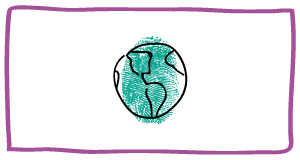Global poverty would fall by 12% if all children in poor countries could read
Global poverty would fall by 12% if all children in poor countries could read, and one extra year of schooling could increase an individual’s earnings by up to 10%, according toTariq Al Gurg, Chief Executive Officer of Dubai Cares.
ABU DHABI: Global poverty would fall by 12% if all children in poor countries could read, and one extra year of schooling could increase an individual’s earnings by up to 10%, according toTariq Al Gurg, Chief Executive Officer of Dubai Cares, a philanthropic organisation working to improve children’s access to quality primary education in developing countries.
Al Gurg’s comments came in a lecture which he delivered as part of Masdar Institute Lecture Series at the Masdar Institute Auditorium. Staff members, faculty and students attended the interview-style discussions to understand the effectiveness of Dubai Cares’ philanthropic programmes that have gained prominence and acceptance at the highest levels in the United Nations for their impact, sustainability and scalability. The lecture was moderated by Dr Bruce Fergusson, Professor in Engineering Systems and Management.
As part of Masdar Institute Lecture Series, Masdar Institute invites experts and leaders from the government, industry and academia to share their knowledge and perspectives with the faculty and students. The series reflects one of the key aspects of Masdar Institute’s contribution to Abu Dhabi’s knowledge development efforts.
According to UN statistics, there are 2.2 billion children in the world, of which 1.9 billion live in developing countries. One billion children now live in poverty. Moreover, 1 billion people will still be living on less than $1.25 a day in 2015. If all students in low-income countries left school with basic reading skills, 171 million people could be lifted out of poverty, resulting in a 12% cut in global poverty. Such statistics make philanthropic efforts by organisations such as Dubai Cares an even more daunting task.
Al Gurg said: “Around 57 million children around the world do not end up in school due to unforeseen circumstances. Moreover, poverty continues to claim the lives of 22,000 children under the age of 5 each day. In this context, our role as a philanthropic organisation assumes great relevance. Wherever there is a relevant need across the world, Dubai Cares intervenes to offer support and assistance.”
Commending Masdar Institute for the research projects in the area of sustainability, Al Gurg pointed out that Dubai Cares shares common objectives with the research-based institution.
Al Gurg added: “Dubai Cares welcomes research projects that tackle challenges in providing water and energy in a sustainable way to the community. These are the two basic necessities that people in some developing countries do not gain access to. We reach out to such communities, offering assistance and making a difference in their lives. At the same time, I firmly believe that the research efforts undertaken by Masdar Institute in sustainability and advanced technology will bring much more benefits to regions that still lack water and energy.”
In this context, and in order to renew and reinvigorate global commitments to education, the United Nations’ Secretary-General, Ban Ki-Moon launched the ‘Global Education First Initiative’ in September 2012, which aims to enrol every child in school, improve the quality of learning and foster global citizenship. Dubai Cares attended the launch of the global initiative during the week of the UN General Assembly in New York, where Ban Ki-Moon selected Dubai Cares to be a member in the Technical Advisory Group of the initiative. The launch was also attended by decision and policy-makers, as well as representatives of UN agencies, NGOs, private foundations and member states.
Since inception in September 2007, Dubai Cares has been reaching out to 8 million children in 31 developing countries. The organisation has built and renovated over 1,500 classrooms, provided more than 1,000 water wells and potable water sources while constructing over 3,000 washrooms in schools.






